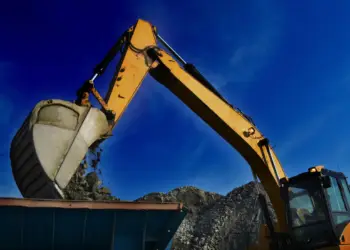Junior mining companies are crucial players in the mining industry exploration landscape, acting as the backbone for discovering new mineral deposits. These small-scale, early-stage firms focus on seeking out valuable resources like gold, silver, and lithium, which are essential for modern technology and renewable energy. Investing in junior mining not only presents significant profit potential but also contributes to the economic impact of junior mining, fostering job creation and community development. With their dynamic approach to exploration, junior mining companies provide the mining sector with fresh opportunities and innovative solutions to meet increasing global demand. Understanding the benefits of junior mining can help investors recognize the vital role these companies play in sustaining and advancing the mining industry.
The junior mining sector encompasses small, emerging firms that specialize in exploring and developing new mineral sources. These nimble entities are often seen as the vanguard of the mining landscape, driving innovation and exploration efforts that established companies may overlook. By focusing on high-potential projects and leveraging venture capital, they position themselves as attractive investment opportunities. The impact of these companies extends beyond mere resource extraction; they also stimulate local economies and create job opportunities, making them indispensable to the mining industry’s future. As the world continues to evolve towards a greener economy, the exploration efforts of these junior firms will be essential in meeting the growing demand for minerals.
Understanding Junior Mining Companies
Junior mining companies are crucial players in the mining sector, often regarded as the backbone of mineral exploration. These small-scale entities focus on discovering and developing new mineral deposits, which is essential for the sustainability of the mining industry. Unlike larger mining companies that concentrate on operating existing mines, junior mining firms invest their resources in exploring new territories to identify potential mineral resources. Their operations typically involve extensive geological surveys, drilling, and sampling to evaluate the viability of these deposits.
The junior mining sector plays a vital role in ensuring that the mining industry remains dynamic and responsive to the ever-changing market demands. By taking on the exploratory risks that larger companies often avoid, junior miners help broaden the base of available mineral resources. Their findings can lead to significant discoveries, which may later attract the interest of larger mining firms looking to expand their operations. Thus, junior mining companies not only contribute to the supply chain but also stimulate competition and innovation within the industry.
The Benefits of Investing in Junior Mining Companies
Investing in junior mining companies offers unique advantages for investors seeking growth opportunities in the mining sector. These companies often have a lower market capitalization, which means that they can experience significant price volatility. While this volatility poses risks, it also presents potential for substantial returns on investment. Investors who identify promising junior mining firms early can reap significant rewards when these companies successfully discover and develop new mineral deposits.
Moreover, the junior mining sector is characterized by its reliance on venture capital and strategic investments. This dynamic environment attracts investors who are looking to diversify their portfolios and tap into the growing demand for minerals, particularly as the world shifts towards renewable energy sources. As junior mining companies uncover new resources, investors can benefit from the resulting increases in stock prices, especially when these firms are acquired by larger companies seeking to enhance their resource bases.
Economic Impact of Junior Mining Companies
The economic impact of junior mining companies extends beyond their immediate operations. They create jobs and stimulate local economies by providing employment opportunities in exploration and development activities. The presence of these companies often leads to the establishment of support services, which further boosts local economies. These services include transportation, logistics, and supply chain management, creating a ripple effect that generates additional economic activity in the surrounding communities.
Furthermore, junior mining companies often invest in local infrastructure, such as roads and communication networks, which can have long-lasting benefits for the regions they operate in. By fostering local skills and knowledge, these companies contribute to community development and enhance the quality of life for residents. The economic benefits generated by junior mining activities can lead to improved education, healthcare, and overall community welfare, highlighting their crucial role in supporting sustainable development.
The Role of Junior Mining Companies in Resource Exploration
Junior mining companies are instrumental in the exploration of new mineral resources, acting as a pipeline for the mining sector. Their focus on identifying new deposits is vital for maintaining a steady supply of essential minerals needed for various industries, including technology, construction, and renewable energy. As major mining companies allocate limited resources to exploration, junior miners fill the gap by actively searching for new opportunities, thereby ensuring the future viability of the mining industry.
Additionally, junior mining companies are often at the forefront of developing innovative exploration techniques and technologies. Their agility allows them to adapt quickly to new discoveries and market trends, enabling them to uncover previously overlooked mineral deposits. This adaptability not only enhances their chances of success but also contributes to the overall efficiency and sustainability of the mining sector, as new resources are identified and brought into production.
Challenges Faced by Junior Mining Companies
While junior mining companies play a significant role in the mining sector, they also face numerous challenges that can impact their operations and growth potential. One of the primary challenges is securing financing for exploration activities. Given their small size and high-risk nature, accessing capital can be difficult, especially in volatile market conditions. Many junior miners rely on venture capital and public offerings to fund their operations, making them susceptible to market fluctuations.
Additionally, regulatory hurdles can pose significant challenges for junior mining companies. Navigating the complex permitting process for exploration and development can be time-consuming and costly. These challenges may deter potential investors, impacting the ability of junior mining firms to secure the necessary funding to advance their projects. Addressing these challenges is crucial for junior mining companies to thrive and continue contributing to the mining sector.
The Future of Junior Mining Companies
The future of junior mining companies appears promising, particularly as global demand for minerals continues to rise. With increasing interest in green technologies and renewable energy sources, the need for critical minerals like lithium, cobalt, and rare earth elements is expected to grow. Junior mining companies are well-positioned to capitalize on this demand by exploring and developing new sources of these essential commodities.
Moreover, technological advancements in mining and exploration are likely to enhance the efficiency and effectiveness of junior mining operations. Innovations such as artificial intelligence and data analytics can improve the identification of viable mineral deposits, reducing exploration costs and risks. As these companies adopt new technologies, they will play an even more pivotal role in the mining sector, driving exploration efforts and meeting the world’s growing mineral needs.
The Importance of Sustainability in Junior Mining
Sustainability has become a critical focus for junior mining companies as they navigate the challenges of modern mining. These companies are increasingly aware of their environmental and social responsibilities, adopting practices that minimize their ecological footprint while maximizing community benefits. By prioritizing sustainable exploration and development practices, junior mining companies can enhance their reputation and appeal to socially conscious investors.
Furthermore, integrating sustainability into their operations can lead to long-term profitability for junior mining firms. Companies that prioritize responsible mining practices are more likely to secure social license to operate, gaining the support of local communities and stakeholders. This support is essential for successful project development and can ultimately contribute to the overall resilience and sustainability of the mining sector.
Exploring New Markets for Junior Mining Companies
As the global economy evolves, junior mining companies are exploring new markets to diversify their operations and minimize risk. Emerging economies, particularly in Africa and South America, present vast opportunities for mineral exploration and development. These regions are rich in untapped resources and offer favorable conditions for junior mining operations, including lower competition and lower operational costs.
By expanding into new markets, junior mining companies can not only increase their resource base but also contribute to the economic development of these regions. Investing in local infrastructure and creating jobs can foster goodwill and support from local communities, enhancing their operational sustainability. As these companies seek to establish a foothold in new markets, their role in the global mining sector will continue to grow.
The Contribution of Junior Mining to Technological Advancements
Junior mining companies are often at the forefront of adopting and developing new technologies that drive efficiency and innovation in the mining sector. Their smaller size and agile business models enable them to implement cutting-edge exploration techniques and processing methods more readily than larger, more established firms. This willingness to embrace technology can lead to significant advancements in mineral extraction processes, reducing costs and environmental impacts.
Moreover, the competitive nature of the junior mining sector encourages companies to continuously seek ways to improve their operations. By investing in research and development, junior miners can explore new methods for locating and processing minerals, ultimately contributing to the overall advancement of the mining industry. This focus on innovation not only benefits the companies themselves but also enhances the sustainability and efficiency of mineral resource management on a global scale.
Frequently Asked Questions
What is a junior mining company and how do they contribute to the mining sector?
A junior mining company is a small, often early-stage firm focused on exploring and developing new mineral deposits, such as gold and silver. They play a crucial role in the mining sector by providing access to new deposits, enhancing exploration efforts, and serving as a pipeline for larger companies seeking new resources, thus supporting the overall growth of the mining industry.
What are the benefits of investing in junior mining companies?
Investing in junior mining companies can offer significant benefits, including the potential for high returns due to their speculative nature and growth potential. These companies often discover new mineral deposits that can increase their market value, making them attractive to investors looking for opportunities in the mining sector.
How do junior mining companies impact local economies?
Junior mining companies significantly impact local economies by creating jobs, boosting wages, and fostering community development. They generate economic opportunities through contracts and local purchases, and their presence often leads to improved infrastructure, which benefits the entire region.
What risks are associated with investing in junior mining companies?
Investing in junior mining companies carries several risks, including market volatility, the speculative nature of their operations, and reliance on venture capital. These companies typically have lower market capitalizations and can be less liquid, making them high-risk investments in the mining sector.
How do junior mining companies facilitate the exploration of new mineral resources?
Junior mining companies facilitate exploration by identifying promising mineral deposits and conducting exploration activities to confirm their potential. They often use Initial Public Offerings (IPOs) to raise capital for these endeavors, laying the groundwork for future supply and demand in the mining industry.
What is the primary aim of junior mining companies in the mining industry?
The primary aim of junior mining companies is to discover and develop commercially viable mineral deposits. They seek to identify valuable assets, secure financing for exploration, and ultimately aim to be acquired by larger mining firms or transition to full-scale production.
Why are junior mining companies considered speculative investments?
Junior mining companies are considered speculative investments due to their early-stage operations, reliance on exploration success, and the inherent risks in mineral discovery. Their stocks can be highly volatile, influenced by market sentiments and exploration results, which can lead to significant price fluctuations.
What role do junior mining companies play in the transition to clean energy?
Junior mining companies play a vital role in the transition to clean energy by discovering new sources of essential minerals like lithium, graphite, and rare earth elements needed for renewable energy technologies. Their exploration efforts help meet the growing demand for these resources in the mining sector.
How do junior mining companies support the development of the mining sector?
Junior mining companies support the development of the mining sector by enhancing exploration activities, providing new mineral sources, and creating economic opportunities. They are essential for identifying and developing new deposits that larger companies can later exploit, thus sustaining the industry.
What challenges do junior mining companies face in the mining industry?
Junior mining companies face several challenges, including securing financing, navigating regulatory environments, and managing the risks associated with exploration. Their reliance on venture capital and the speculative nature of their operations can also create hurdles in achieving long-term success.
| Key Points | Description |
|---|---|
| What is a Junior Mining Company? | A small, early-stage mining company focused on discovering new deposits of minerals such as gold, silver, and uranium. |
| Characteristics | – Lower market capitalization ($1M to $500M) – Thinly traded stocks, high volatility – Often rely on venture capital financing – Primarily engaged in exploration and development. |
| Aims | – Identify valuable assets – Search for deposits – Seek financing for production – Aim for acquisition by larger companies. |
| Benefits to the Mining Sector | – Provide access to new deposits – Offer preselection of promising commodities – Create economic/employment opportunities in local regions. |
Summary
Junior mining companies play a crucial role in the mining sector by paving the way for future exploration and development of essential mineral deposits. These companies not only enhance the supply chain by discovering new resources but also contribute significantly to local economies through job creation and infrastructure improvements. Their dynamic presence in the market stimulates growth and provides investors with unique opportunities in the mining industry.













